Dear all,
Welcome to the February newsletter! First up on the DISC agenda is of course the Benelux Meeting. Early registration closed and we already have 200+ participants, so it looks like it’s going to be a very good turnout in March.
We are also happy to announce the DISC Winter Course on Numerics and Control. Hans Zwart and Siep Weiland took the initiative to organise this course and they found very enthusiastic lecturers. It will take place from March 16-18 in Eindhoven.
Last but not least, the DISC Summer School “Planning, Learning and Control for Multi-Robot and Multi-Agent Systems”. Javier Alonso Mora and Ming Cao are the organisers of the 2020 edition, which will take place ate the newly renovated Centerparcs Zandvoort.
We hope to see many of you in person at the Benelux Meeting!
Best wishes,
Henk Nijmeijer
Scientific director
Martha Otte
DISC secretariat
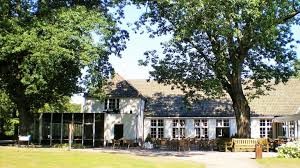
The Organising Committee has the pleasure to invite you to participate in the 39th Benelux Meeting on Systems and Control. The meeting will be held from March 10-12, 2020 in “Hotel Mennorode”, Elspeet, the Netherlands.
Invited speakers:
Thomas Schön, Uppsala University, Sweden
Kristin Pettersen, Norwegian University of Science and Technology (winner of the Hendrik W. Bode lecturer prize 2020)
Ming Cao, University of Groningen
Marcel Heertjes, Eindhoven University of Technology and ASML
For more information visit the website: https://www.beneluxmeeting.nl/2020/
In March the following courses will start:
System Identification
Prof. P. Van den Hof
Prof. J. Schoukens
Dr. G. Bottegal
Linear Matrix Inequalities in Control
Prof. S. Weiland
Dr. T. Donkers
For the full list of courses for 2019-2020 see: https://disc.tudelft.nl/education/course-program/2019-2020-course-program/
Register on the DISC course platform.
The courses are taught at cursus en vergadercentrum Domstad in Utrecht, location Koningsbergerstraat 9. For more information see their website.
The course on Numerics and Control will deal with distributed parameter systems with boundary control and observation, described as port-Hamiltonian systems (pHs). The pHs representation emphasizes the power flows between subsystems and over the system boundary, and is therefore particularly favourable for multi-physics modelling and for energy-based control designs.
The focus in this course will be structure-preserving numerical methods, which transform an infinite-dimensional pHs into a finite-dimensional one, and/or a continuous-time pHs into a discrete-time pHs, mimicking the structural power balance at the discrete level.
We introduce specific numerical methods which achieve this goal, such as the Partitioned Finite Element Method (PFEM). The mathematical language will be vector calculus at the beginning, and exterior differential calculus at the end. Examples will be first treated thoroughly in one space dimension, and in a second stage in higher space dimension. The last part of the course is devoted to geometric time integration, discrete-time pHs and the use of the introduced concepts for discrete-time energy-based control.
In order to be as concrete as possible, two labs are planned for structure-preserving PFEM: the first one in Matlab will enable to tackle 1D problems quite easily, whereas the second one in Python will pave the way for simulation and control of 2D and 3D problems, making use of FEniCS software. The part on discrete-time systems and control will be accompanied by Matlab examples.
Lecturers
Ghislain Haine is Associate professor and Denis Matignon is full professor, both at the Institut Superieur de_l’Aeronautique et de l’Espace (ISAE), France. Paul Kotyczka is a professor at the Technical University of München, Germany
Date and Location
The course will take place from Monday March 16 until Wednesday March 18, 2020.
The location will be Eindhoven University of Technology.
Fee and credits
There is no fee for DISc members. Non-DISC members pay € 250. You can obtain 1 ECTS for taking part in the Winter Course.
More information and Registration
Registration on the DISC Course Platform, for more information see https://disc.tudelft.nl/education/winter-course/wintercourse-2020/
Javier Alonso Mora and Ming Cao have the pleasure to invite you to participate in the DISC Summer School “Planning, Learning and Control for Multi-Robot and Multi-Agent Systems”, which is scheduled to take place from June 30-July 3, 2020, at Centerparcs Zandvoort, Zandvoort, The Netherlands.
Multi-robot and Multi-agent Systems
In the (near) future fleets of autonomous cars will coordinate to provide on-demand transportation while making our roads safer; mobile robots will coordinate in manufacturing and logistic processes; and teams of aerial robots will provide automated inspection and surveillance. These applications require novel methods and theoretical developments in the systems and control field that account for the interaction and coordination with other agents in complex environments.
In this summer school, we will present recent developments towards the endeavour of pervasive multi-robot and multi-agent systems. The lectures and tutorials will cover the concepts of communication-based coordination (consensus, distributed optimization and formation control), interaction (decision-making in multi-agent systems), motion planning and learning. The lectures contain both recent control theoretical development, as well as, application within the robotics field. Additional, we are hoping that this summer school will serve to partially bridge the gap between controls and AI research for multi-robot and multi-agent systems
Lecturers
The main program will consist of a number of international and national speakers. Keynote lectures will be given by:
Complemented by talks given by DISC lecturers:
Registration
The registration fee, which includes full board and lodging, is
For more information please refer to the website: https://disc.tudelft.nl/education/summer-school/disc-summer-school-2020/
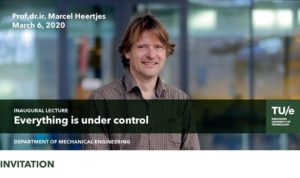
Prof.dr.ir. Marcel Heertjes was appointed part-time professor of Industrial nonlinear control for high-precision systems at the Department of Mechanical Engineering at Eindhoven University of Technology (TU/e) on February 1, 2019. He will deliver his inaugural lecture on March 6, 2020. His lecture is titled “Everything is under control”.
Prior to the inaugural lecture a symposium entitled “Everything is under control” is being organized. More information here.
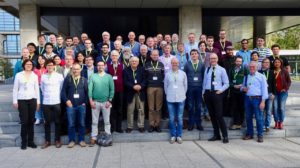
25-26 October 2019, UPark Hotel, University of Twente
The workshop hosted 60 participants, including researchers from Belgium, France, Finnland, Germany, Italy, The Netherlands, Poland and the UK from 20 different universities. The programme, consisting of 19 scientific talks, covered a broad variety of research topics, from functional analysis, systems theory and abstract pde theory to applied topics such as robotics and biomedical engineering. These presentations impressively reflected Hans Zwart’s work and diverse research interests. We can also happily report on Hans’ great surprise who did not know about the size of the event beforehand.
Delft University of Technology
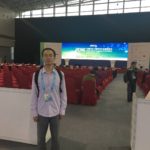 Name: Xiaolin He
Name: Xiaolin He
Starting date: 15-01-2020
Function: PhD
Email: X.He-2@tudelft.nl
Group: CoR
Supervisors:Riender Happee
My name is Xiaolin He. I was born in 1993 in Shandong Province of China.
I spent 4 years as an undergraduate student at Jilin University majoring in vehicle engineering and graduated there in 2016. In the same year, I went to Tongji University to have my master program. There, I took part in a joint research project by Tongji and JTEKT. The topic is “evaluation and optimization of lane assistance system based on driver’s acceptability”. In 2019, I got my master and enter SAIC Volkswagen to start my job as an engineer. During my career, I was responsible for parking assistant development management, MQB-37w parking assistance development and some matching test.
I started my PhD in the field of perceived safety and trust in automated vehicles supervised by Riender Happee.
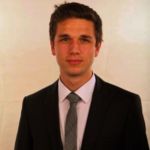 Name: Max Spahn
Name: Max Spahn
Starting date: 15-01-2020
Function: PhD
Email: M.Spahn@tudelft.nl
Group: CoR
Supervisors: Javier Alonso Mora
I am Max Spahn and I start my Ph.D. at CoR in Javier’s group. I have finished my MSc at RWTH Aachen in November 2019 and was graduated from École Central Paris in the same year. I am the last Ph.D. joining the group working in cooperation with the AIRLab Delft. In this context, my work will be focussed on the motion planning of mobile manipulators in dynamic environments, such as stores and warehouses. In my free time, I play soccer and go cycling and since I have just moved to the Netherlands, I am learning Dutch at the moment.
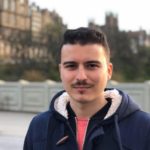 Name: Wilbert Tabone
Name: Wilbert Tabone
Function: PhD
Email: w.tabone@tudelft.nl
Group: Cognitive Robotics (CoR)
Supervisor: dr. Joost de Winter
Greetings! I’m Wilbert Tabone from Malta and I’ll be embarking on a research journey which will attempt to assess the interactions between vulnerable road users and autonomous vehicles using VR/AR technologies. I’ll be supervised by dr. Joost de Winter. My main research interests are the interaction between humans and machines (HCI), mixed reality technologies and UX. I graduated BSc. (Hons.) with first class honours in Creative Computing from the University of London and later read for an MSc in Artificial Intelligence at the University of Malta, conducting my research at the Bernoulli Institute for Mathematics, Computer Science and Artificial Intelligence, University of Groningen in the Netherlands.
In the last few years I have been actively involved in the cultural, technology and education sectors and am an activist for a number of Maltese and international NGOs, including the Commonwealth Youth Council. I was most recently spearheading creative computing development and museum experience development in the local heritage sector and served as a quality assurance auditor for the National Commision for Further and Higher Education (NCFHE). During the past year I formed part of Malta.AI, the Malta National Task Force on Artificial Intelligence, which was tasked with formulating Malta’s national strategy on AI.
In my spare time I’m really interested in computer art, art and cultural heritage in general, history, anything techy, anything high fantasy, I train classical voice and I have also spent too much time in my teens playing MMORPGs – so yeah I’m interested in video games too 🙂
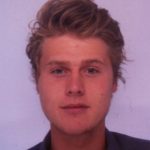 Name: Bas van der Heijden
Name: Bas van der Heijden
Function: PhD
Email: D.S.vanderHeijden@tudelft.nl
Group: Cognitive Robotics (CoR)
Supervisor: dr. Laura Ferranti and dr. Jens Kober
My name is Bas van der Heijden and I will start my PhD working on the OpenDR project under the supervision of dr. Ferranti, dr. Kober, and, prof. Babuska. The focus of the PhD will be on developing a comprehensive toolkit that will facilitate roboticists in using deep reinforcement learning. To this end, I will design and integrate automatic hyper-parameter tuning, while also providing guidelines for parameter tuning.
Instead of a short summation of my hobbies, I would like to introduce myself by challenging you all in a little game called ‘two truths one lie’. Below I state two truths and one lie about myself and it’s your guess which one is the lie:
– I beat the world record “fastest time to eat a lemon with peel”.
– A Dutch chain of convenience stores was named after me.
– I used to have a cleaner handwriting when writing with my eyes closed.
I am excited to start my PhD at the Cognitive Robotics department and I look forward to meeting everyone. Contact me and find out which one’s the lie!
University of Groningen
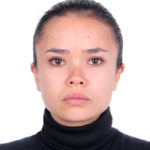 Name: Stefanny Guadalupe Ramirez Juarez
Name: Stefanny Guadalupe Ramirez Juarez
Function: PhD Student
Email (RUG): s.g.ramirez.juarez@rug.nl
Group: Optimization and Decision Systems
Supervisor: Dario Bauso
Project: Evolutionary Dynamics in Social Networks
Bachelor’s degree in Actuarial Science at National Autonomous University of Mexico. I got my dree by academic excellence. (2010 – 2014). Master’s degree in Data Science at University of Sussex. Thesis: “Data driven models for wealth inequality”, Supervisor: Enrico Scalas. (2018-2019). I have worked in different financial institutions in Mexico, such as BBVA and Scotiabank, in the Credit Risk, Liquidity Risk and Interest Rate Risk Departments (2013 – 2018).
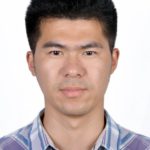 Name: Haiwen Wu
Name: Haiwen Wu
Function: Guest researcher
Email: haiwen.wu@rug.nl
Group: Discrete Technology and Production Automation
Supervisor: Prof. Bayu Jayawardhana
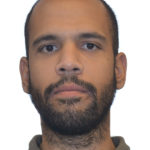 Name: Leonardo de Paula Carvalho
Name: Leonardo de Paula Carvalho
Function: Visiting Ph.D. student
Email: l.de.paula.carvalho@rug.nl / carvalho.lp@usp.br
Group: Nonlinear control group.
Supervisor: Professor Bayu Jayawardhana / Professor Oswaldo Luiz do Valle Costa
Project: Fault Detection and Fault Compensation for Markovian Jump Linear Systems
Leonardo de Paula Carvalho was born in 1986 in Campo Grande, MS, Brazil. He obtained his BSc degree in Electrical Engineering from Universidade Federal do Mato Grosso do Sul in 2011, and the MSc in Electrical Engineering from Universidade Estadual de Campinas in 2016. He is a Ph.D. student in the
Control Group of the Department of Telecommunications and Control Engineering of the Polytechnic School of the University of São Paulo, Brazil. His research interests include control and filtering theory, convex optimization, Markov jump linear systems, and Networked Control Systems.
Eindhoven University of Technology
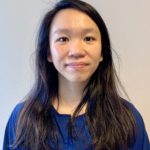 Name: Michelle Chong
Name: Michelle Chong
Starting date: 01-01-2020
Function: assistant professor
Email: m.s.t.chong@tue.nl
Group: CST
I am Michelle Chong, from Melbourne, Australia. As of January 2020, I’m a
tenure-track assistant professor at TU/e, affiliated to the Control Systems
Technology group in the Department of Mechanical Engineering. I completed
my undergraduate degree and PhD in December 2008 and 2013, respectively
at the Department of Electrical and Electronic Engineering, the University of
Melbourne. I have held postdoctoral positions in the University of Melbourne,
the University of California Santa Barbara, Lund University and KTH Royal
Institute of Technology. I am an American Australian Association’s
ConocoPhillips postdoctoral fellow for 2013-14, which supported my
postdoctoral position in the University of California Santa Barbara.
My current research focuses on estimation and control for nonlinear and hybrid
systems, with applications in power systems and neuroscience. I have a strong
interest in addressing security-related problems for cyber physical systems,
where control theoretic approaches can bring new insights for the analysis and
the design of estimation and control algorithms which are resilient against
adversarial attacks.
During my spare time, I enjoy learning and performing choral music.
Renaissance polyphony is a staple genre on my playlist.
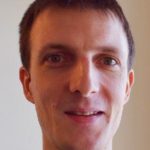 Name: Koen Tiels
Name: Koen Tiels
Starting date: 03-02-2020
Function: Assistant professor
Email: k.tiels@tue.nl
Group: Control Systems Technology
Hi! My name is Koen and I am 32 years old. I did my Bachelor and Master in electro-mechanical engineering at the Vrije Universiteit Brussel (VUB). I obtained my PhD in 2015, also at the VUB, and started a post-doc there on the identification of nonlinear state-space models. From 2018 to 2020, I was a post-doctoral researcher in the Division of Systems and Control at Uppsala University (Sweden), combining my background in nonlinear system identification with (statistical) machine learning. In the future, I want to combine this background with control technology.
In my spare time, I like running and playing table tennis.
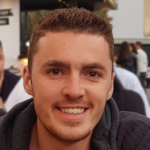 Name: Koen Classens
Name: Koen Classens
Starting date: 01-01-2020
Function: PhD
Email: k.h.j.classens@tue.nl
Group: CST
Supervisors: Maurice Heemels and Tom Oomen
Hi all! My name is Koen Classens and I started as Ph.D. student in the Control Systems Technology group. The Ph.D. project is about “Fault Detection and Isolation for Predictive Maintenance in High-Tech Semiconductor Equipment” and is supervised by Tom Oomen and Maurice Heemels. Early December I have received my master’s degrees in Mechanical Engineering and in Systems and Control. In the form of a collaboration between the Control Systems group and the Mechanics of Materials group I performed research at the interface of two very different domains. It is fascinating to see that control theory provides solutions in so many different areas, including challenges faced in materials science. In my graduation project, “Multiphyisical Modeling and Control of Photopolymerization for Additive Manufacturing”, the potential is shown to improve product quality by controlling the mechanical properties that build up during polymerization. During my master phase, I have also visited the University of Canterbury to perform research on an entirely different topic: biologically-inspired robotics. At this university in New Zealand they have built some very impressive robots of which the snake robot is unarguably the coolest one. Here I modeled the locomotion of this snake robot that consists of multiple links interconnected by series elastic actuators. Hope to meet you all soon!
 Name: Nick Paape
Name: Nick Paape
Starting date: 15-01-2020
Function: PhD student
Email: n.paape@tue.nl
Group: Control Systems Technology
Supervisor: Michel Reniers
Project: Model-based supervisory control for flexible manufacturing systems
Hi everyone. My name is Nick Paape, I’m 26 years old, and I graduated last year in the master Manufacturing Systems Engineering at the Eindhoven University of Technology. During my master thesis at Vanderlande I developed an algorithm for the synthesis of supervisors which guarantee that a system quickly recovers from failures. After my thesis I worked together with Michel (Reniers), Asia (van de Mortel-Fronczak) and Lennart (Swartjes), and together we submitted a paper to the IFAC 2020 world congress, titled ‘efficient failure-recovering supervisors.’ My PhD project will be about using model-based supervisory control for flexible manufacturing systems to improve the poultry processing lines of Marel in Boxmeer.
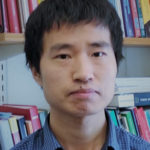 Name: Zhiyong Sun
Name: Zhiyong Sun
Starting date: 13-1-2020
Function: assistant professor
Email: z.sun@tue.nl
Group: Control Systems Group TU/e
Supervisor: Paul Van den Hof
I received my Ph.D. degree from Australian National University (ANU), Canberra ACT, Australia, in February 2017. After that, I worked as a Research Fellow/Lecturer with the Research School of Engineering, ANU (from 2017 to 2018), and as a postdoctoral researcher at Department of Automatic Control, Lund University of Sweden (from June 2018 to January 2020). Since January 2020 I have joined TU/e as an assistant professor. My research interests include complex network systems, autonomous robotic systems, multi-agent formations and distributed optimization. Please find more in my webpage: https://sites.google.com/view/zhiyong-sun/
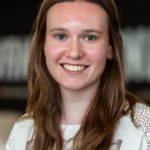 Name: Karlijn Fransen
Name: Karlijn Fransen
Starting date: 1-2-2020
Function: PhD student
Email: k.j.c.fransen@tue.nl
Group: Control Systems Technology
Supervisor: Michel Reniers and Joost van Eekelen
Project: control of a high performance heterogeneous industrial AGV system
My name is Karlijn Fransen, I am 25 years old and I currently live in Eindhoven. I am a new PhD student in the Control Systems Technology group since the beginning of February. I have studied at the TU/e; in 2012 I started a Bachelor in Mechanical Engineering, and last July I graduated with a double Master degree in Mechanical Engineering (specialization: Dynamics and Control) & Industrial and Applied Mathematics (specialization: Statistics, Probability and Operations Research). During my graduation project, I developed a path planning approach for automated guided vehicles (AGVs) in a dense, grid-based system. I executed this project in collaboration with Vanderlande. Afterwards, I decided to start working for Vanderlande as a system integrator at the R&D department. Unfortunately, I didn’t like the work I was doing and therefore I decided to start something new: a PhD project on the control of a high performance heterogeneous industrial AGV system. This is a collaboration between Vanderlande and the TU/e.
Delft University of Technology
Candidate: I. Miletovic
Group: AE
Thesis: Motion Cueing Fidelity in Rotorcraft Flight Simulation. A New Perspective using Modal Analysis
Promotor: Prof.dr.ir. M. Mulder
Date: 03-02-2020
Location: Aula, TU Delft
Time: 15:00
Candidate: D. Cleij
Group: AE
Thesis: Measuring, Modelling and Minimizing Perceived Motion Incongruence for Vehicle Motion Simulation
Promotor: Prof.dr.ir. M. Mulder
Date: 04-02-2020
Location: Aula, TU Delft
Time:15:00
The next issue of this Newsletter will appear in March 2020.
We encourage the contributors to provide newsworthy information. In principle, we intend to publish any message offered. However, we reserve the right to edit certain parts of a submission.
Please send your contributions to: m.w.otte@tudelft.nl
You receive this newsletter because you are a member of DISC. If you want to be removed from the mailing list, please let us know by sending an email to m.w.otte@tudelft.nl